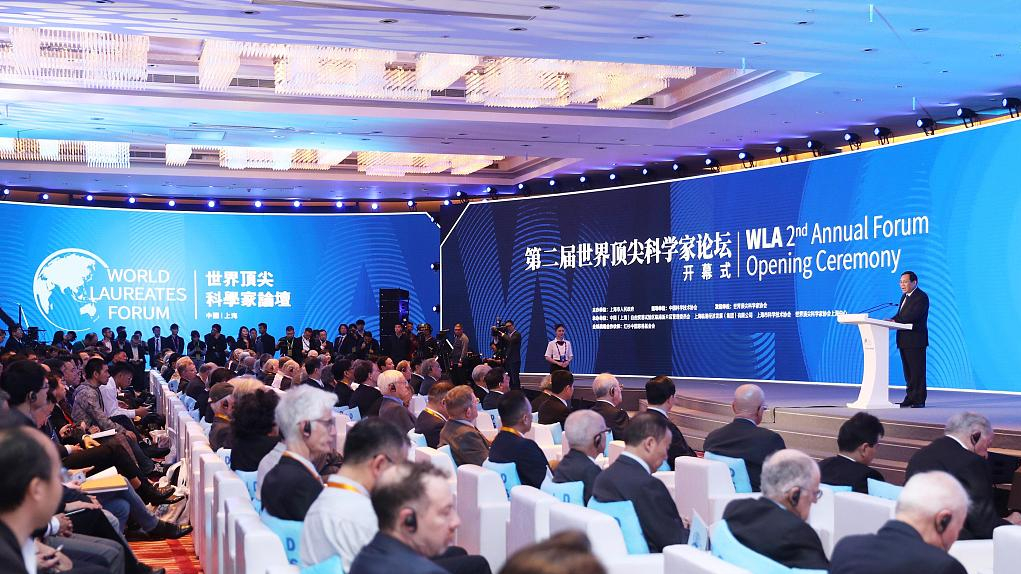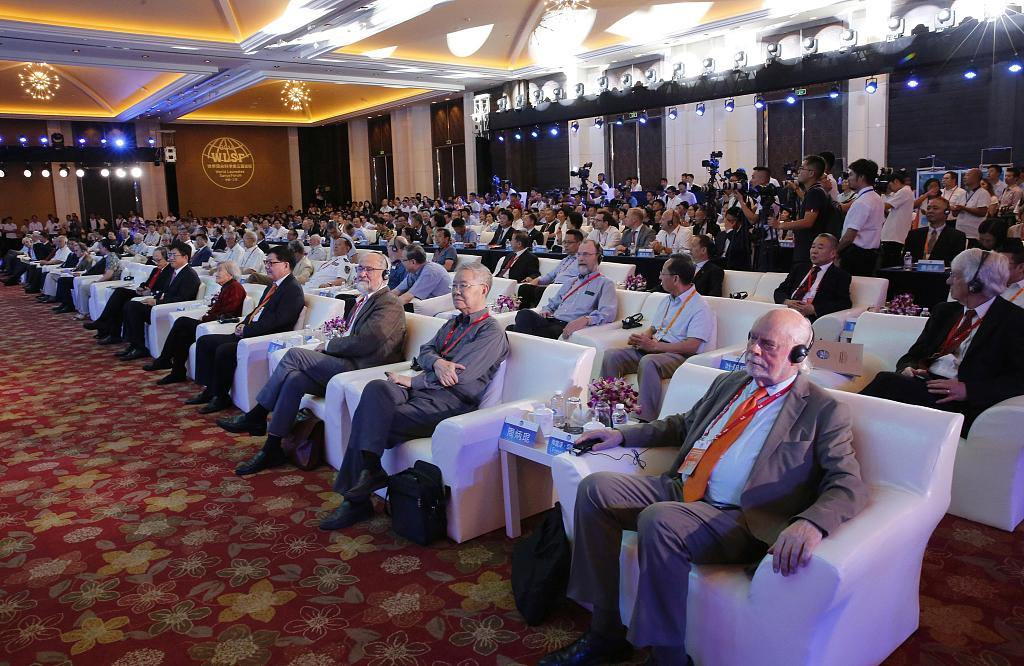
The 2nd World Laureates Forum opens in Shanghai, October 29, 2019. /VCG Photo
The 2nd World Laureates Forum opens in Shanghai, October 29, 2019. /VCG Photo
Editor's note: Li Zheng is an associate research fellow at the China Institutes of Contemporary International Relations, Institute of American Studies and the director of the American Security Center, Institute of American Studies. The article reflects the author's opinions, and not necessarily the views of CGTN.
The second World Laureates Forum opened in Shanghai on October 29, 2019. More than 60 of the world's top scientists and more than 100 Chinese science leaders participated in the forum. The purpose of this forum is to promote exchanges between the Chinese and foreign scientific communities and to create sparks of innovation through conversation.
This dialogue is particularly important at a time when the scientific and technological conflicts between China and the United States are heating up. Under the Trump administration, the U.S.' attitude toward China's technological development has changed significantly. Discriminatory attitudes in the U.S. have impacted Chinese scientists. It is increasingly difficult for Chinese scientists to obtain U.S. visas. Some American politicians even believe that exchanges between Chinese and American scientists should be blocked completely. Just recently, Chinese scientists were unable to attend the International Astronautical Congress in full because their visa applications were stalled.
The U.S. government's concerns about Chinese scientists are unprofessional. Scientists have their own specialties, and their talents cannot be copied or stolen. The scientific community can make progress on frontier explorations and produce win-win results through cooperation. Due to the Chinese government's strong support for basic sciences, Chinese scientists are now leading the world in certain fields. The U.S. scientific community and the world could benefit from hearing voices of Chinese scientists.
Blocking exchanges between Chinese and American scientists may result in a cognitive gap between the scientific communities of the two countries. Science is a universal field. Mainstream scientists want scientific results to be used for peaceful purposes, to promote the advancement of human society, and to improve the well-being of the general public. These universal pursuits have made scientists a group of people with values.

Conversations between scientists across borders benefit not just the scientific community, but also society at large. /VCG Photo
Conversations between scientists across borders benefit not just the scientific community, but also society at large. /VCG Photo
Scientists' exchange of values and ideas can solve many of key challenges in China-U.S. relationship. For example, Compared to professionals in media and politics, scientists can accurately interpret the true purpose of national policies and pass them on to the governments and societies of the two countries. Through exchanges, scientists can clarify misunderstandings about each other's national science and technology policies.
In addition, it can prompt the scientific communities of the two countries to reach a common understanding of the security risks of some cutting-edge technologies, and jointly avoid the abuse or militarization. Scientists form international rules for cutting-edge technologies based on risks, and make sure that these technologies do not pose a threat to the safety of all human beings. This would also serve as the basis for cooperation between the two governments.
Finally, exchange of scientists can also bring the scientific communities of the two countries back to what scientific research is intended for – solving global problems through innovation. The exchange will allow scientists from both countries to find potential areas for cooperation and to engage the scientific communities in other countries.
These benefits wouldn't be realized if there is not enough communication. The blockade of the scientific communications by the United States will not only make the scientific development of the two countries embark on a completely different path, but will also make technological risks been realized on a global scale. Avoiding these situations is the main reason why China strongly supports the gathering of scientists around the world.
(If you want to contribute and have specific expertise, please contact us at opinions@cgtn.com.)